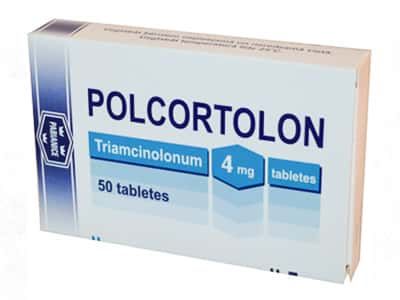Polcortolone 4 mg, tablets, 20 pcs.
27,00 €
Hormonal drug
In stock
Save this product for later
Customer reviews
Reviews only from verified customers
No reviews yet. You can buy this product and be the first to leave a review.
Polcortolone 4 mg, tablets, 20 pcs.
Product Details
Polcortolone, 4 mg, tablets, 20 pcs.
Category:
Hormonal (without sex hormones)
Specialties:
Infectious and parasitic diseases Allergology Endocrinology gastroenterology Hematology Rheumatology clinical oncology Dermatology and Venereology
Action :
immunosuppressive anti-inflammatory antiallergic
Indications for use:
Chronic over-the-counter corticotherapy according to generally accepted principles .The drug is used in oncology, hematology, rheumatology, dermatology, allergology, pneumonia, gastroenterology, endocrinology, ophthalmology, transplantology, neurosurgery, all procedural specialties, in the clinic of infectious diseases.
Dosage:
The dosage and frequency of use of the drug is determined by the doctor.
Tell your doctor:
With hypersensitivity to the components of the drug. When you have been diagnosed with generalized fungal infections, bacterial infections (including tuberculosis) and viral infections, peptic ulcer disease, hypertension, circulatory insufficiency, psychosis, edema, diabetes, chronic renal failure, hardening of the cerebral arteries, glaucoma, thrombosis. When you take barbiturates, glutetimide, rifampicin, antiepileptic and antihistamines, ephedrine, estrogens, nonsteroidal anti-inflammatory drugs, acetylsalicylic acid. If you either assume that you are pregnant or breastfeeding.
Side effects:
Violation of hormone secretion of the adrenal cortex. Symptoms of Cushing's syndrome: purple stretch marks and skin changes, acne, hypertrichosis, body silhouette changes, muscle atrophy, hypertension, edema, glucose tolerance disorders, osteoporosis, menstrual disorders, impotence. Osteonecrosis, cataracts, glaucoma, stomach ulcers, gastrointestinal bleeding, pancreatitis. Immunological disorders: decreased immunity of the body, susceptibility to infections, mycoses, impaired wound healing. Children have a slowdown in growth. Headaches and dizziness, drowsiness, weakening of muscle strength, muscle atrophy, weight loss, loss of appetite are most often observed.
Ask a question or inquire about delivery to your country
Display prices in:EUR
